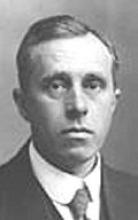
Johan Huizinga was a Dutch historian who lived from 1872 to 1945. His book, Homo Ludens: A Study of the Play Element in Culture, published in 1938, suggested the instinct for play as the central element in human culture and examined the role of play in law, war, science, poetry, philosophy, and art. He saw all human activities as playing where “…the great instinctive forces of civilized life have their origin: law and order, commerce and profit, craft and art, poetry, wisdom and science. All are rooted in the primaeval soil of play.”1
Huizinga had a strong interest in history and linguistics and earned his Ph.D. in 1897. He taught history in both secondary schools and in universities in the early 1900s. He was a professor of history at the University of Leiden in 1915 until it was closed during the German occupation of the Netherlands during World War II. He was also an editor of a magazine from 1916 to 1932 and published many famous works during this time. Two of these works were The Autumn of the Middle Ages (1919), which dealt with the life, behaviors, ideas, and art of the upper classes of Burgundy in the 14th and 15th centuries, and Erasmus and the Age of Reformation (1924), a biography of the famous Dutch Renaissance scholar. He also wrote about the national characteristics of early America and traveled to the United States in 1926. During the German occupation, Huizinga criticized the German influence on Dutch science and was arrested by the Nazis in 1941. He was released in 1942, but was not allowed to return to his home and died in detention in 1945, a few months before the end of the war.2
His book, Homo Ludens, which literally means “Man, the player,” is a wide-ranging work describing the many aspects of the influence of play on culture. He saw the evidence of play being older than culture, since animals can be seen engaging in play. After his lengthy attempt to describe the characteristics of play he concluded:
“Summing up the formal characteristics of play we might call it a free activity standing quite consciously outside ‘ordinary’ life as being ‘not serious,’ but at the same time absorbing the player intensely and utterly. It is an activity connected with no material interest, and no profit can be gained by it. It proceeds within its own proper boundaries of time and space according to fixed rules and in an orderly manner. It promotes the formation of social groupings which tend to surround themselves with secrecy and to stress their difference from the common world by disguise or other means.”3
With a basic understanding of play, Huizinga felt that play imposes rules to be followed and creates order. To cooperate in play, all involved must stay within the moral structure of the rules and adhere to them or the game is spoiled.4 With this premise established, he attempted to tie aspects of play to cultural activities, such as contests, rituals, seasonal festivals, and religious activities, where rules are followed and people are taken out of ordinary life for a limited time and place much like play allows.5
Huizinga suggested that civilization did not come from play, but play has been seen in many aspects of it. “Ritual grew up in sacred play; poetry was born in play and nourished in play; music and dancing were pure play….We have to conclude, therefore, that civilization is, in its earliest phases, played. It does not come from play…it arises in and as play, and never leaves it.”6 However, he asserts that civilization has played a role in diminishing play:
“As a civilization becomes more complex, more variegated and more overladen, and as the technique of production and social life itself become more finely organized, the old cultural soil is gradually smothered under a rank layer of ideas, systems of thought and knowledge, doctrines, rules and regulations, moralities and conventions which have lost all touch with play. Civilization, we then say, has grown more serious; it assigns only a secondary place to playing.”7
- 1. Liukkonen, Petri. “Johan Huizinga (1872-1945).” Pegasos. < http://kirjasto.sci.fi/huizin.htm > 6 Oct. 2011.
- 2. Ibid.
- 3. Huizinga, Johan. Homo Ludens: A Study of the Play Element in Culture. Beacon Press, 1955.
- 4. “Johan Huizinga: Homo Ludens.” Icosilune. < http://www.icosilune.com/2009/01/johan-huizinga-homo-ludens/ > 6 Oct. 2011.
- 5. Op. cit., Huizinga.
- 6. Play Quotes.” The Strong. < http://www.thestrong.org/about-play/play-quotes > 6 Oct. 2011.
- 7. Jeffries, L. B. “Johan Huizinga’s ‘Homo Ludens’.” PopMatters. < http://www.popmatters.com/pm/post/127853-johan-huizingas-homo-ludens > 6 Oct. 2011.

